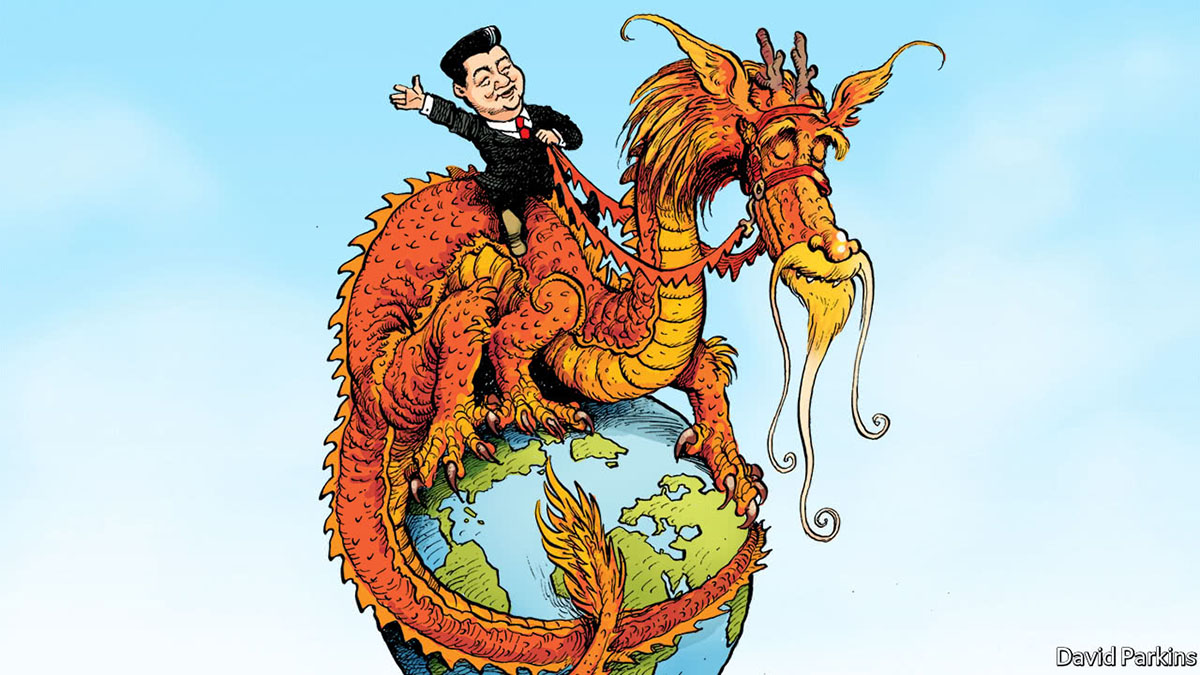It’s undeniable that too many Western elites are willfully blind to the threat of China. As Clive Hamilton details in Silent Invasion, China is using skullduggery, from “Belt and Road Initiative” bribery to outright espionage and intimidation, to undermine and infiltrate the institutions of the West.
But whilst the threat of China shouldn’t be ignored, it also pays to keep China’s rise in perspective. China is weighed down with structural, historical and demographic problems, the combined weight of which are enough to frustrate its ultimate ambition to be a superpower – for the foreseeable future. As Mark Steyn points out, China’s future is a demographic time-bomb. “Its population will get old before it’s got rich…unless China’s planning on becoming the first gay superpower since Sparta”.
China’s Not a Superpower…and won’t be anytime soon, according to Minxin Pei, who says its political and economic situation is more precarious than it looks.
While China’s economic rise has been meteoric, it takes much more than economic, or even military clout to be a genuine superpower.
A great power is not necessarily a superpower. In world history, only one country–the United States–has truly acquired all the capabilities of a superpower: a technologically advanced economy, a hi-tech military, a fully integrated nation, insuperable military and economic advantages vis-à-vis potential competitors, capacity to provide global public goods and an appealing ideology. Even in its heydays, the former Soviet Union was, at best, a one-dimensional superpower–capable of competing against the United States militarily, but lacking all the other crucial instruments of national power.
Despite its rapid economic growth – the scale of which, it must be always be remembered, can only be judged on official figures from a regime not exactly noted for its openness – China is still very much a peasant society.
Per capita income in China will remain…roughly one-tenth of the level of the United States and Japan. More than half of the Chinese population still live in villages, most without access to safe drinking water, basic healthcare, or decent education. With urbanization growing at about 1 percent a year, it will take another three decades for China to reduce the size of its peasantry to a quarter of the population. As long as China has an oversized peasantry, with hundreds of millions of low-income rural residents surviving on the margins of modernity, it is unlikely to become a real superpower.
To believe that China is the next superpower, it’s also necessary to assume that China’s super-charged economic growth will continue.
There is every reason to believe that China’s economy will falter significantly over the next two decades. Its export-led economy is particularly vulnerable to trade wars from its competitors – it’s no surprise that Xi Xinping is caving so quickly to Trump’s threat of trade war.
China’s “economic miracle” has also come at a staggering environmental cost. China is already trying to clean up its act, but the sheer scale of its pollution will eat more and more of its GDP, especially if its population continues to sicken from air and water pollution.
China’s history is also against it. The United States became a superpower as a people united by the “American Dream”. China has no such unifying dream.
China is economically prosperous but ideologically bankrupt. It believes in neither communism nor liberal democracy…Unlike the United States, China will find its capacity to exercise power abroad greatly constrained by the lack of political integration at home.
China’s central government will never be able to project its power across the globe so long as, as it always has, the bulk of its power is spent holding together rebellious provinces and a fractious middle-class.
As Chinese society grows more sophisticated and autonomous, the party will find it increasingly difficult to deny the rights of political participation to the urban middle-class…[but] a possible democratic transition is not the only thing feared by the Chinese ruling elites–ethnic secessionism may be even more threatening. For all intents and purposes, China is not a nation-state, but a multi-national empire with huge chunks of its territory (Tibet and Xinjiang) inhabited by secessionist-minded minority groups.
apac2020.thediplomat.com/feature/chinas-not-a-superpower/
Neither are China’s neighbours going to sit idly by as its power expands. Not only India and Russia, but Japan, South Korea, Indonesia and Vietnam; none of them are pushovers and most of them have historical resentments against China that will stymie any Chinese ambitions of hegemony outside its historical borders.
That doesn’t mean, however, that anyone should be complacent about China. China is, without a doubt and will continue to be, a great power, even if its superpower ambitions are thwarted. Indeed, China’s current flurry of bribery, covert intimidation, intellectual property theft and muscle-flexing in the Pacific might well be viewed through the lens of a regime which knows that it’s on a downhill run.
Finally, it should never be forgotten that China is still ruled by the regime responsible for the calamitous Great Leap Forward famine, the Cultural Revolution and Tiananmen. Mao’s image is everywhere in a way that Hitler’s or Stalin’s are no longer.

